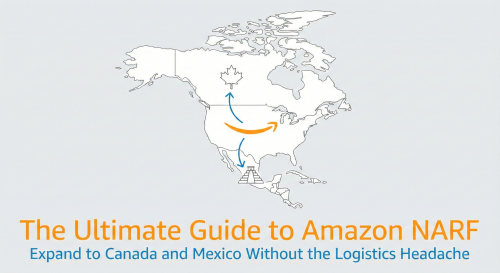
Amazon's journey into logistics began with its need to control its supply chain and ensure timely deliveries to customers. Initially, Amazon relied heavily on third-party carriers for its shipping needs. However, as the company grew, it recognized the need for a more robust and efficient logistics network.
The establishment of Amazon's extensive network of fulfillment centers was a significant step towards achieving greater control over its logistics operations. These centers enabled Amazon to store products closer to customers, reducing delivery times and costs.
The Birth of Amazon Freight Partner
Identifying the Need
As Amazon's order volumes surged, the company faced challenges in managing its freight operations efficiently. The reliance on traditional carriers often led to delays, inconsistent service quality, and higher costs. To address these challenges, Amazon identified the need for a dedicated freight program that could provide consistent and reliable transportation services.
Launching the Program
The Amazon Freight Partner program was launched as a strategic initiative to partner with small and medium-sized trucking companies. The goal was to create a dedicated network of carriers that could haul freight exclusively for Amazon, ensuring consistent loads, competitive compensation, and access to advanced technology and resources.
Key Milestones in the Evolution
Expanding the Network
The initial phase of the program focused on building a robust network of partner carriers. Amazon conducted thorough evaluations to select carriers that met its stringent safety, compliance, and performance standards. This expansion allowed Amazon to increase its freight capacity and improve delivery times.
Integration of Advanced Technology
One of the hallmarks of the Amazon Freight Partner program is the integration of advanced technology. Amazon invested in real-time tracking, route optimization, and automated dispatch systems to enhance operational efficiency. These technologies provided partner carriers with the tools they needed to optimize their operations, reduce fuel consumption, and improve delivery accuracy.
Enhancing Support and Training
Amazon recognized that the success of the program depended on the success of its partner carriers. To this end, the company introduced comprehensive training programs, safety guidelines, and dedicated account management support. These initiatives ensured that partner carriers were well-equipped to meet Amazon's high standards and deliver exceptional service.
Impact on the Logistics Industry
Empowering Small and Medium-Sized Carriers
The Amazon Freight Partner program has empowered small and medium-sized carriers by providing them with consistent freight opportunities and competitive compensation. This democratization of the freight industry has allowed smaller players to compete with larger carriers and grow their businesses.
Setting New Standards for Efficiency
The integration of advanced technology and best practices has set new standards for efficiency in the logistics industry. Real-time tracking, route optimization, and automated dispatch systems have improved the reliability and speed of freight transportation.
Driving Innovation
Amazon's commitment to innovation extends to its freight operations. The program has encouraged the adoption of cutting-edge technology and continuous improvement, driving innovation across the logistics ecosystem.
Strengthening the Supply Chain
By partnering with a diverse network of carriers, Amazon has strengthened its supply chain and enhanced its ability to meet customer demands. This flexibility and resilience are crucial in an increasingly dynamic and competitive market.
Is amazon freight partner worth it
The Amazon Freight Partner program is getting a lot of attention in the logistics and transportation industry. There are a lot of negative reviews of AFP on the internet, most of them untrue and more influenced by the opinions of competitors. For small and medium-sized trucking companies, the question often arises: is it worth it to join the Amazon Freight Partner Program?
The answer depends on a variety of factors, including your business goals, operational capabilities, and willingness to adapt to Amazon's standards and requirements. Next, we'll discuss whether AFP is worth it from an objective point of view.
Benefits of the Amazon Freight Partner Program
Consistent Freight Opportunities
One of the most compelling reasons to join the Amazon Freight Partner program is the promise of consistent freight opportunities. Amazon's vast logistics network ensures a steady stream of loads, providing partner carriers with regular work. This consistency helps reduce downtime and improve overall profitability.
Competitive Compensation
Amazon offers competitive compensation packages to its freight partners. The program provides transparent and predictable payment structures, enabling carriers to plan their finances effectively. Additionally, Amazon's scale allows it to negotiate favorable rates, which are passed on to the partner carriers.
Access to Advanced Technology
Partner carriers gain access to Amazon's advanced technology and logistics tools, including real-time tracking, route optimization, and automated dispatch systems. These tools enhance operational efficiency, reduce fuel consumption, and improve delivery times.
Comprehensive Support
Amazon provides extensive support and resources to its freight partners. This includes training programs, safety guidelines, and dedicated account management. By offering these resources, Amazon ensures that its partners can operate at the highest standards and deliver exceptional service.
Business Growth Opportunities
Joining the Amazon Freight Partner program can open doors to significant business growth. The consistent freight opportunities and competitive compensation allow carriers to expand their operations, invest in new equipment, and hire additional staff.
Potential Drawbacks of the Amazon Freight Partner Program
Stringent Requirements
The Amazon Freight Partner program has stringent requirements that carriers must meet to join and remain in the program. These include safety standards, compliance with regulatory requirements, and performance metrics. Meeting these standards can be challenging, especially for smaller carriers.
Increased Operational Demands
Partnering with Amazon may require carriers to adapt their operations to meet Amazon's high standards for efficiency and reliability. This can involve investing in new technology, training staff, and implementing new processes, which can be time-consuming and costly.
Dependence on a Single Client
Joining the Amazon Freight Partner program means that a significant portion of a carrier's business will depend on Amazon. While this can provide consistent work, it also means that carriers are vulnerable to changes in Amazon's policies, volumes, or contract terms.
Competitive Pressure
The program is highly competitive, with many carriers vying for the same loads. This can lead to pressure to meet or exceed performance metrics to secure consistent work. Carriers must be prepared to operate at peak efficiency to remain competitive.
Here are some user comments from the reddit community.
Comment from user eBodyIsR0und: Most of the AFP sites are still run entirely by TOM team (Transportation Operations Management) employees like myself. currently make $28/hour, and in a couple years I'll be making $30/hour (plus whatever across-the-board raises they give us at that time; usually $0.50-$1 per year, sometimes more). per year, sometimes more). Amazon also paid me to get my CDL with no strings attached and reimbursed me $120 for mileage to take the test (which was 1.5 hours away from home).
Honestly, the only downside to working at Amazon is the terrible camera system and the resulting job instability. Some of us might get a little jaded after dealing with 3rd party drivers all day. Some of us might get a little jaded after dealing with 3rd party drivers all day. But for the most part, I think we're still very friendly and helpful (to the extent that Amazon's policies allow).
Review from user BankOld5317: It's a 9 month contract to go with this carrier, didn't think that was so bad. My wife actually works as a receiving clerk at an Amazon cross dock in the Midwest so I get some stories from her here and there. I looked up several carriers that are hiring and training drivers. Some had horrible ratings and lots of incidents (speeding citations, dot violations) but this company I'm talking to didn't have any. I looked up several carriers that are hiring and training drivers. Some had horrible ratings and lots of incidents (speeding citations, dot violations) but this company I'm talking to didn't have any.
The Amazon Freight Partner program offers numerous benefits, including consistent freight opportunities, competitive compensation, access to advanced technology, and comprehensive support. For small and medium-sized carriers, these advantages can lead to significant business growth and improved operational efficiency. However, the program also comes with potential drawbacks, including stringent requirements, increased operational demands, dependence on a single client, and competitive pressure.








